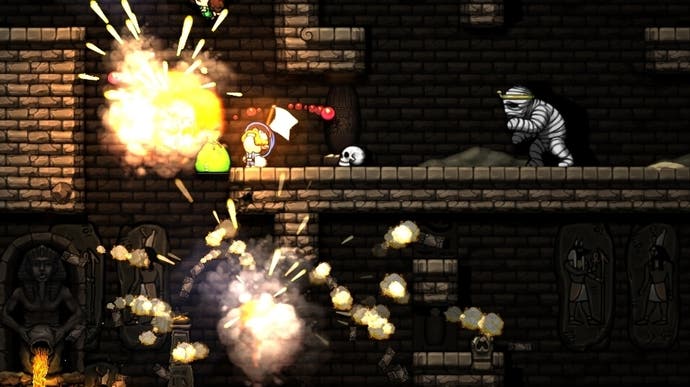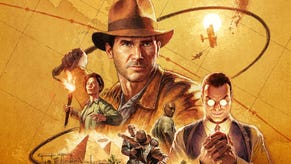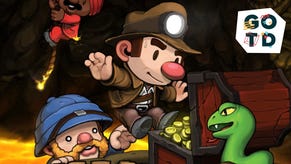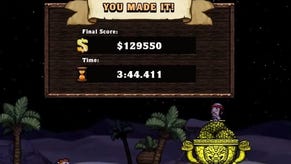Uncanny games with hidden rooms
Five and a half minute hallway.
This piece contains spoilers for Sea of Thieves.
For a while, a university friend of mine rented a bedsit in which one of the walls came with the clear ghost of an old door on it. You could run your hand over the plaster and feel the bumps and ridges where a doorway had been filled in. The weird thing is that there was a room-shaped gap on the other side of the wall, and no clear way of getting into it. It wasn't like the owner had decided to move the entrance to the bathroom, say. Instead, there was now a hidden room in the house - not very well hidden, granted - and who knew what was in there?
A hidden room. The effect is uncanny, I think - an intriguing, bewildering word which is even better in the original German, where it's unheimlich. Heimlich itself means secret or concealed, I gather. For years I had it in my head that it meant homelike. (Heim is the thing that got me confused.) Unhomelike is the best of all. What could be less homelike than discovering a hidden room in a place you think you have already come to know well?
I have another friend who has just become a pirate legend - but only, alas, within the confines of Sea of Thieves. It's an arduous job, achieving legendary status, but the reward is extremely appealing. You are granted access to a hidden lair. I joined him in the game a few days ago so he could show it to me. We met in a bar somewhere during a terrible thunder storm. I was expecting a trip on the ocean to reach this lair, so I assumed we were going to wait for the skies to clear and then head out. Instead, after standing around for a few minutes in the flickering gloom, my friend pulled out an accordion and started to play.
And something astonishing happened.
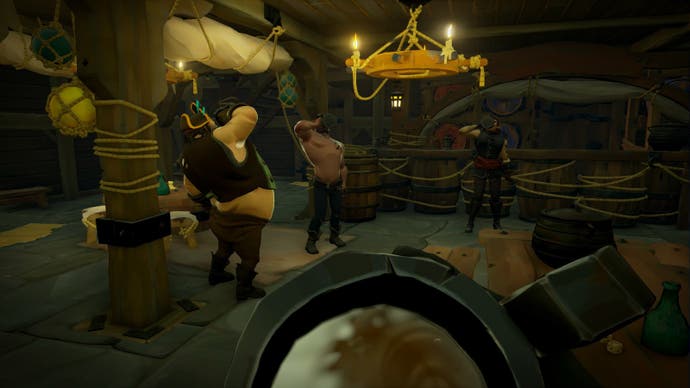
I'm not going to tell you what, exactly. Pirates deserve their secrets, and anyway you can probably dig about for it and find it on YouTube. It made me think of that friend of a friend and his guestbook trick, though. It made me think about hidden rooms in video games and how they're always a thrill, always something you sit up for, always something that sees you leaning into the screen and catching your breath.
Games used to be filled with these things, or so it seems to me looking back. The first games I played on the Commodore 64 that belonged to my brothers, these games were architecturally very sparse, which made them, at the same time, architecturally very suggestive. Dark walls with a few bright lines for walls and floors and ceilings. There was always a hope, I think, that some part of that darkness might conceal a great secret, something few players would ever find.
Ghostbusters on the C64 had something that felt like a hidden room. Sort of. It captured that sense of being in the right place at the right time, anyway. Ghostbusters was a game about running a business. You hired staff, tricked out a car, paid for equipment and then set about busting ghosts and making money. The main screen was a stylised map of New York, and different city blocks would flash as the calls came in.
At the centre of the map was Spook Central. I can't remember what happened if you went there when it wasn't flashing - I don't think anything much happened. But if you made it to the end-game, the Gatekeeper and the Keymaster, two characters represented by a roving lock and key respectively, would both head to Spook Central and Spook Central would start to flash red. Finally you could go there and find the Marshmallow Man jumping back and forth outside of Dana Barrett's apartment building. What a thrill! If you could get your Ghostbusters inside without being stomped, you triggered a wonderful final delight: a headlong rush up the face of the building, which was suddenly impossibly tall, and then the sight of your heroic Ghostbusters crossing the streams and banishing Zuul. A cinematic, I guess we'd call it today, but because it was a special piece of real estate in a game that had a lot of procedural real estate it felt different. It felt like a hidden room.
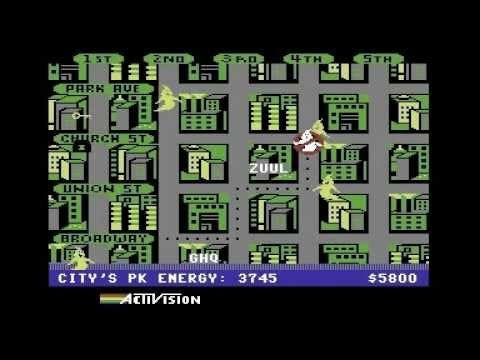
A few years later, in the Master System era, I was happily pootling along in Wonder Boy 2 when the game froze as I was mid-jump and a message popped up. "Someone be behind this wall," it said, or words to that effect. The wall looked like any other wall, but I pressed up on the controller anyway. Hidden door. Hidden room.
I can't remember what was in it. But it doesn't matter. It never does really. What matters is that it's there and you found it, and for a while you get to be there, in this illicit space where nothing much is happening but in which you feel, somehow, outside of the game, outside of the story, outside of the usual moment-to-moment concerns of virtual heroes. A hidden room is almost a dialogue between you and the designer. They break the fourth wall - of course it's an architectural analogy at heart - and seem to speak to you directly, just for a single suspended moment.
Often it's getting there that makes the hidden room special. Is the City of Gold in Spelunky a hidden room? Cutting against this definition is the fact that the doorway is very easy to find. You can't miss it, lurking somewhere in 4-2, I think: a golden doorway with a keyhole in it. Nothing hidden there.
Instead, it's the path that's hidden. The path to the City of Gold is hidden and also deeply treacherous. I would say getting there is highly unlikely. You have to aim for it from early on. You need the Udjat Eye, which is in a locked chest in the mines somewhere - the gatekeeper and the keymaster are circling once more. Once you have it, and you reach the jungle, the Udjat Eye will start to blink when you are near the secret entrance to the Black Market. If you have enough bombs you can blow the entrance open. But you also need to have collected enough gold to make it worth your while, 50,000 pieces of gold, which will allow you to buy the Ankh from a shopkeeper in the market itself.
You've got the Ankh! Good stuff. It will bring you back to life if you die, which is helpful enough. But if you die on the level of the ice caves that has the giant stone head, it will bring you back inside it and that will grant you the Hedjet. After the Hedjet, all you need is the magical staff from Anubis that you'll find in 4-1, the first temple level. But Anubis is a powerful enemy, and in dying and resurrecting in the giant head you'll have lost any weapons you may have picked up along the way.
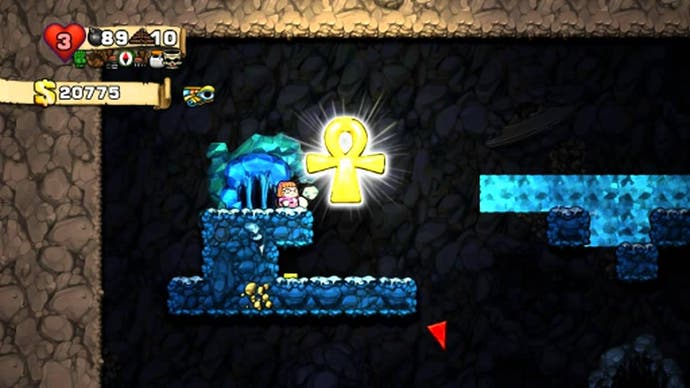
Still, maybe Anubis runs into some spikes? Maybe he's crushed by one of those Rook Blocks - they aren't called that - which rush back and forth whenever you trigger them, squishing you against a wall or a floor or a ceiling. Maybe you get the magical staff! Then you make it to 4-2 and you survive until you find the entrance to the City of Gold. You open the door...
I have never made it this far. I have made it with everything but the staff. I have made it with the staff but without everything else. I could look the City of Gold up on YouTube, but what would be the point? It's just a city made of gold. What I'll find there doesn't matter. But because I always try to get to the City of Gold with each run, I have never actually finished Spelunky's main campaign. The City of Gold pushes me to take risks at every step. Find the Udjat Eye, which means uniting the key and the chest. Earn enough money for the Ankh in the Black Market, which means sounding out every level for cash rather than just beating it to the exit. Kill myself at just the right point in the ice caves. Face down Anubis, who - I might have mentioned this before - really isn't screwing around.
(The City of Gold isn't the end of the trail, incidentally. It doesn't have to be. It can lead you to Hell, and the game's final ending. As I type this, I realise that I have no interest in this second hidden room. I do not wish to go to Hell. Perhaps this is because of the ease with which that sentence assembles itself in the mind: I do not wish to go to Hell. Perhaps it's simply that the sad gravity of marginal utility affects even secrets. One hidden room is enough.)
And back to pirates. Last week I dropped into Fortnite after a while away. I've started playing without the Battle Pass again, because it's nice to be rooted in the world itself in a way that I find difficult if I'm thinking about all these extrinsic triggers I should be aiming for. I landed on a hill somewhere away from the main focal point of the action. As is best with Fortnite, I was utterly alone. Ahead of me a funny looking structure rose into the sky: a house at the bottom, I think, but ruined, and something wonky erupting out of the top of it, wood and bits of tattered cloth and planks reaching out bearing torches.
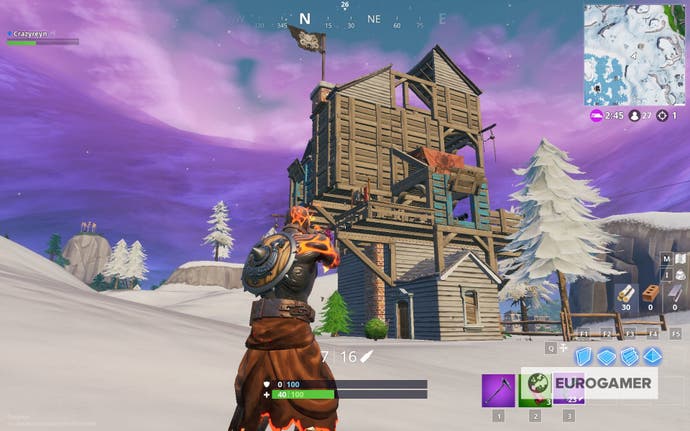
I went inside and discovered one of the new pirate camps that have been placed across the map. A rundown space in the process of being repurposed. Books were stacked in a corner of one room, a hammock had been slung between the rafters of another. Upstairs I found a stack of television sets - somebody had scored big! - and then cannons on the roof.
Is this a hidden room? It was certainly not something I was expecting to find. And because it's Fortnite, whenever I visit a pirate camp again there is a sad sweetness that comes from the knowledge that sooner or later the season will end and the landscape will be freshly ploughed and the pirates and their camps with go back in the vault.
I could take screenshots, I guess, but that isn't the point. It's never the point with a hidden room. The thing that matters is the moment you're in there, the thrill of discovery giving way to a sense of potent aimlessness, if such a thing is possible, of being outside of the regular confines of a game and experiencing this pause, this gap, this breath, this indulgence.
